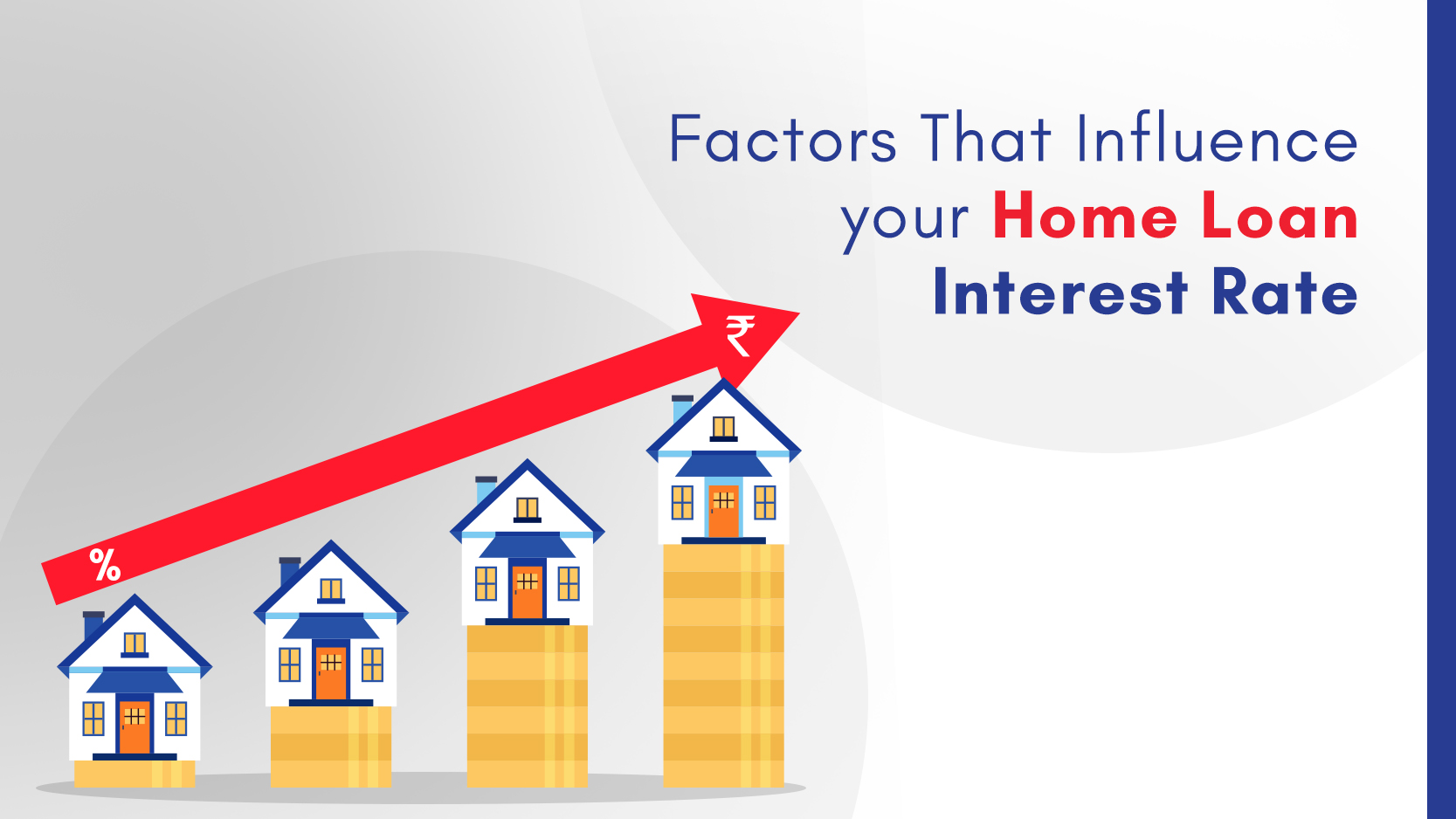Special Offers




Special Offers




18-Jan-2024 | Home Loan

Securing a home loan is a significant financial commitment, and one of the critical aspects that borrowers often scrutinise is the interest rate. The interest rate on your home loan plays a pivotal role in determining your overall repayment burden.
In this comprehensive blog post, we will delve into the various factors that influence your home loan interest rate, shedding light on key elements such as credit score and the importance of checking your credit score online.
Before we embark on dissecting the factors affecting home loan interest rates, It's crucial to understand the basics. The interest rate is essentially the cost of borrowing, expressed as a percentage, that NBFC, HFC charge for providing you with a home loan. This rate can vary based on several factors, and being aware of these variables can empower you to make informed decisions throughout the home loan application process.
Your credit score is undeniably one of the most influential factors affecting your home loan interest rate. A credit score is a numerical representation of your creditworthiness, compiled based on your credit history. Home Loan Company use this score to assess the risk associated with lending to you. The higher your credit score, the lower the risk for the lender, and consequently, you may qualify for a competitive interest rate.
Credit scores typically range from 300 to 900, with higher scores indicating better creditworthiness. While specific lender requirements may vary, a score above 720 is generally considered good, while anything above 750 is excellent. Maintaining a good credit score involves timely repayment of debts, keeping credit card balances low, and avoiding unnecessary credit inquiries.
In the digital age, checking your credit score online has become a simple and convenient process. Regularly monitoring your credit score not only keeps you updated on your financial health but also provides an opportunity to identify and rectify any errors that may affect your score.
The Loan-to-Value Ratio is a crucial factor in determining the risk perceived by the lender. It is the ratio of the loan amount to the appraised value of the property. A lower LTV implies a lower risk for the lender, as there is more equity in the property. In such cases, lenders may offer competitive interest rates as they have a more substantial asset securing the loan.
The type of interest rate you choose – fixed or floating – can significantly impact your home loan interest rate.
Opting for a fixed interest rate provides stability and predictability as your interest rate remains constant throughout the loan tenure. This can be advantageous when market interest rates are expected to rise. However, fixed-rate loans may initially have higher interest rates compared to variable rates.
Floating interest rates, also known as adjustable rates, fluctuate based on market conditions. While they can be lower initially, they carry the risk of increasing over time. Choosing a floating rate could lead to potential savings if market interest rates remain stable or decrease.
The tenure of your home loan, or the loan term, can impact the interest rate. Generally, shorter-term loans tend to have competitive interest rates compared to longer-term loans. While a shorter loan term may result in higher monthly payments, it can lead to significant savings in interest payments over the life of the loan.
Lenders evaluate your Debt-to-Income Ratio to assess your ability to manage additional debt responsibly. DTI is the percentage of your gross monthly income that goes toward paying debts. A lower DTI indicates a healthier financial position and may result in a competitive interest rate. Managing existing debts and keeping your DTI within acceptable limits can positively influence your home loan interest rate.
Lenders consider your employment history and income stability when determining your home loan interest rate. A stable job and consistent income reassure lenders of your ability to meet repayment obligations. Applicants with a reliable employment history and a steady income stream may be offered more favourable interest rates.
Securing a home loan is a significant milestone, and understanding the factors that influence your interest rate is essential for making informed decisions. Your credit score, loan-to-value ratio, type of interest rate, loan term, debt-to-income ratio, and employment and income stability collectively contribute to the interest rate you are offered.
Regularly checking your credit score online, maintaining a good credit history, and managing your financial health can significantly enhance your chances of securing a home loan at a favourable interest rate. As you embark on your homeownership journey, armed with this knowledge, you can navigate the intricacies of home loan interest rates with confidence and make choices that align with your financial goals.